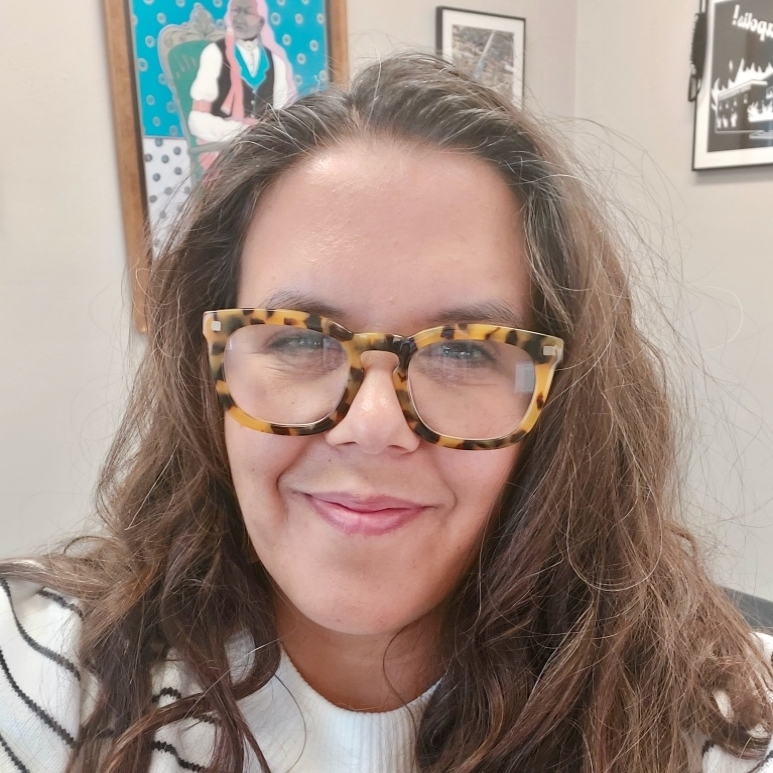Melissa Olson

M.A. Arts Politics Class of 2023
B.A. Liberal Arts, University of Minnesota
Melissa Olson (she/hers) is a journalist, a community archivist, and an essayist.
She is a news reporter for Minnesota Public Radio covering stories about Indigenous Peoples who share a geography with the state of Minnesota. She is a recent contributor to MPR’s North Star Journey Series—stories about the resiliency of Indigenous, Black, and people of color throughout Minnesota.
Her award-winning, long-form audio documentary Stolen Childhoods was produced in collaboration with KFAI community radio and aired statewide on Minnesota Public Radio in 2017.
Melissa attended the Third Coast Audio Festival as an Association for Independents in Radio (AIR) 2019 fellow. In 2018, she attended AIR’s Full Spectrum Audio Storytelling workshop at Union Docs in Brooklyn, NY.
She has received multiple Page One awards from the MN Society for Professional Journalists.
She is a recent contributor to an We Are Meant to Rise: Voices for Justice from Minneapolis to the World, an anthology published by the University of Minnesota Press.
Melissa works with MIGIZI Communications on a long-term project to preserve MIGIZI’s radio archive, a digitization project encompassing 15 years of radio programming by Indigenous radio-makers.
She is a graduate of the University of Minnesota college of Liberal Arts and a past recipient of a MacArthur Fellowship for her graduate work in American Studies. She holds a master’s degree in arts and public Policy from NYU’s Tisch School for the Arts.
Melissa is a tribal citizen of Leech Lake Band of Ojibwe. She lives in Minneapolis, Minnesota.
What drew you to the M.A. in Arts Politics:
In a recent essay, “Adopted: Blood, Trace and Native Authenticity” Joseph M. Pierce writes about his experience as the child of Native adoptee. He writes, “What does it mean to “return” to a community after having been adopted out? What language must exist for these stories to simultaneously reflect the lived experience of an adoptee, the structural framework of settler-colonial violence, and communal practices of kinship?” And, Pierce goes on, “My approach to these questions is like what Cherokee scholar Qwo-Li Driskill calls “re-storying”: “a retelling and imagining of stories that restores and continues cultural memories.” I feel very strongly I have been engaged in this practice of re-storying, along with my family, for as long as I can remember. At NYU, I intend to continue to research, write, and explore what “re-storying” means for me as a writer and as a radio-maker and to share my stories with others who may share similar experiences.